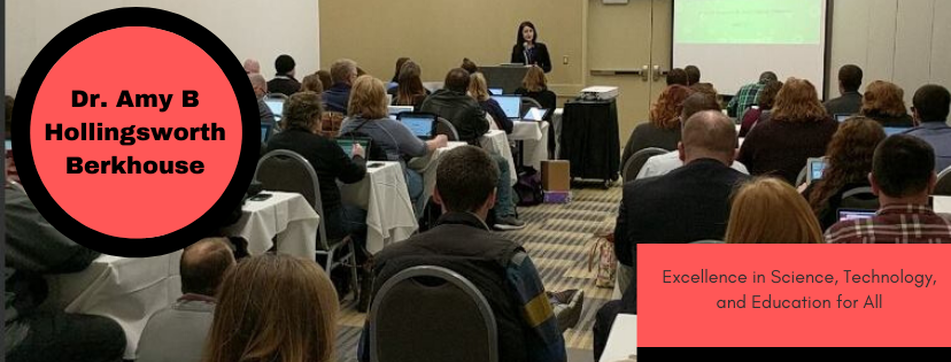I sometimes get a hundred student emails a day. I have 640 students, in 16 sections of lab that I coordinate. In addition to a hundred other emails I get, from people who need or want my time, want to sell me something, want me to read their book, or take their course. In order to respond to student emails, I need to first know some basic info.
1. Tell me who you are, what class you’re in, and who your teacher is.
Example:
“Hi Amy, this is Drew Carey, and I’m in the Monday 4:30 lab with my TA Tom.”
You wouldn't believe how many students expect me to immediately remember who they are, and what class they are in. I have 640 students. Most professors either teach multiple sections of the same class, or different classes with lots of students. I have students placed with 7 different TAs. I’m sorry, please at least initially, jog my memory so I don’t have to hunt that down myself. Name, Class, Section, Instructor. Do this in every email, in every class, every time. Take the effort. It makes professors happy.
2. Keep it SHORT!
If you can keep your email under two or three sentences, that would be perfect. In fact, I never respond to a student email with an answer over three sentences, if I can help it. If my response is over three sentences, I make new paragraphs. It helps the reader immensely. Here is an example of a long email (you don’t have to read it, just skim it):
Hi there. I am aware that you aren't my TA, but he hasn't responded to my emails so I'm left with no option but to email you to see what I can do. I was in the hospital last Tuesday and was warned that I might have (disease removed), so I was to stay in bed for a week and given medication to try to pinpoint what was wrong with me without doing invasive testing because I didn't show severe symptoms, but enough to cause concern. I showed (a certain gross) symptom, and so I showed it to my doctor and they said it might be (disease removed). Anyway, as a result I missed last week's lab. I emailed my TA several hours before class had started - I went to the hospital that morning - but I never received a reply. I have a medical excuse for my absence, but I'm not sure what I am meant to do in this situation since I'm sure I won't be able to make up a lab. There is also a chance that if I have a fever tomorrow I will be unable to attend class as well, though I do intend to attend class. Also, for our projects I believe you posted on (university website) stating that we were supposed to be given a demo for (the project), and we weren't given that last week from what I heard from my group. I emailed my group member and she said that she didn’t know what was going on, and I emailed that other guy who only comes to class once in a while with the brown hair and the black bookbag and he didn’t respond either. I'm not sure if this is something that we will be going over tomorrow, but I wanted to send you an email beforehand to let you know what has been going on. If I am able to attend class tomorrow I will also speak with my TA about my absence and what we should be doing for our group project, but I wanted to run it by you as well in case I am unable to attend.
Hi Amy, this is Drew Carey, and I’m in the Monday 4:30 lab with my TA Tom. I tried to contact my TA, because I’ve been in the hospital, but he hasn’t replied. I have a doctor’s note for the labs I’ve missed. Should I give that to you or him?
I am also confused about the project. Will my TA be talking about that more in class?
2. Format for Readability and Clarity.
Did you see how hard it was to read the first email? I can’t just skim that and figure out what the student wants. I’d have to read it several times. By saying:
Hi Amy, this is Drew Carey, and I’m in the Monday 4:30 lab with my TA Tom. I tried to contact my TA, because I’ve been in the hospital, but he hasn’t replied. I have a doctor’s note for the labs I’ve missed. Should I give that to you or him?
I am also confused about the project. Will my TA be talking about that more in class?
3. Make it clear what you want me to do.
Here’s a really unclear email I received recently:
I have failed the last two quizzes. It’s really inconvenient to take them in the computer center, and I don’t have time. You’ve got to help me. I can’t afford to fail another quiz!
Hi Amy, I have missed the last two quizzes because the computer center closes at 7pm, and I work until 8pm. Is there any way you could leave the quizzes open another day? Thank you.
If you need to send me a longer email with more info, at least put the call to action at the top. Something like, “I’m sending you this email because I’m having trouble with the quizzes, as described below. Please let me know if you can leave them open another day?”
4. Be reasonable with your request.
It’s so easy to send off an email in 30 seconds that might take me hours to respond to. Please don’t ask me “Why am I failing?” To actually review everything about you, as a student, and properly answer that question, takes me more energy than you can imagine. The answer is almost never, “You are failing because you failed the quiz.” The answer usually involves multiple measures, and a lot of background research on my part. And, I’m sure you can also see that you can also see you are failing the quizzes, by looking at the online grade book.
If I can respond to your email in less than two minutes, I’ll do so immediately. What about your failing grade do you want to know? Was there a mistake in my grading? Are you missing an assignment? Is there something wrong with your TA? Is there something in your life that is causing the failure? If you are looking to argue that grades are an unfair assessment of academic performance based on arbitrary measures that are unfairly normed in a heterogeneous society complicated by social and racial injustices – email is not the place for that. I am actually not the correct professor to be talking to about that, at all.
If you have a specific question that can be answered in a few minutes, be concrete, and ask that particular question. If your email will take over 20 minutes just to type – come to my office hours. Standing in front of a professor is the best way to explain longer stories. I like to be able to look you in the eye, answer those little questions, see who you are, see your expressions, your gestures, and see what you are asking for, and why. If you’re looking to pick my brain or “get away with something,” (like mentally exhausting me into giving you more time for an assignment that you missed because you forgot, which most often includes crying profusely) then I suggest you refer to the syllabus.
5. A syllabus is a MAGICAL, answer-filled document.
In order to teach my course at the university, I must provide a syllabus for the course. Consider a syllabus a contract between student and professor. In the syllabus, there is (usually, at least for me) a clear calendar of due dates, course policies, university rules, and references. The book is listed. The required book. Yes, really required. Like, go buy it. That’s why it says “required.” Students could understand so clearly what is required of the course by reading the syllabus. What the teacher will do. What the student must do. I have even created an automated response in my Gmail that says “Please refer to the syllabus.”
If you are going to email me a question, SHOW ME why I should take the time to help you.
I know that sounds harsh, but it’s important. If you ask me a question that is clearly spelled out in the syllabus, or that I’ve answered in class (but you missed, because you were asleep), I get impatient. After reading 100 emails, and getting asked a lot of repeat or lazy questions, I am frazzled. (There is actually a term for this, called “decision fatigue.” It means that I’ve been asked to make so many decisions in one day, that I just say no to all of the requests) Keeping up with 640 students is really, really, really hard. Don’t make it harder on me, please.
If you ask me a clear, concise question, I will be so happy with you. I will answer your question. Maybe even from my phone! Students like immediate responses. In this day of email and smartphones, I can often answer your email quickly, within minutes. If you have something to tell me that is huge, come to office hours. If it’s so immediately important or urgent, then email me, and tell me you are coming to my office hours to talk. Give me an idea of why. “Hi Amy, I missed the lab, because I was abducted by aliens. Can I come to your office hours Monday, and talk about making it up? I’ll bring the pictures.”
Yes, student. Yes you can!



 RSS Feed
RSS Feed
